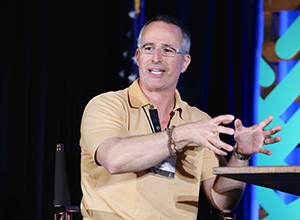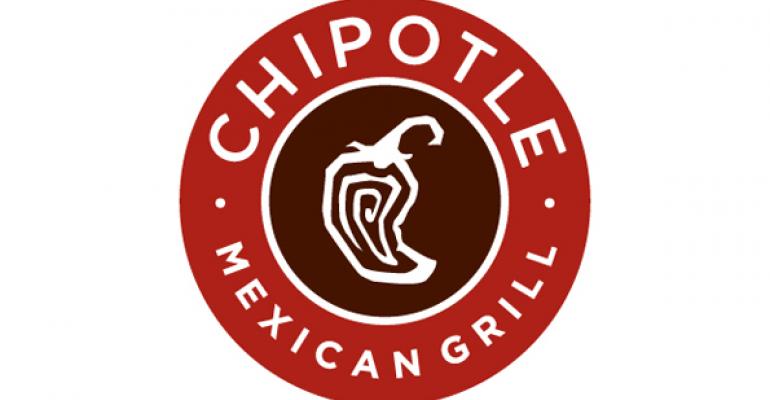Chipotle Mexican Grill Inc. will expand benefits formerly reserved for salaried workers, including tuition reimbursements, sick pay and paid vacations, to all employees on July 1, executives said Thursday.
JD Cummings, recruitment strategy manager at Denver-based Chipotle, and William Espey, brand voice lead in Chipotle’s marketing division, made the announcement during a presentation at the annual Summer Brand Camp marketing and human resources conference, sponsored by Dallas-based analytics firm TDn2K.
“We just made an announcement internally that we are now going to be offering sick pay and paid vacation time for all employees at all levels of the company, including all entry-level employees” Cummings said. “And we’re going to be offering the tuition reimbursement that we offer salaried employees to all hourly employees.”

Danielle Winslow, a Chipotle spokeswoman, said Monday that the company will reimburse 90 percent of tuition, books and fees up to the Internal Revenue Service’s limit of $5,250 per calendar year. Eligible expenses include registrations, university and lab fees, and specific supplies, she said. The benefits will be offered to crew cashier and takeout specialists with one year of service, and to all hourly managers and salaried employees with no waiting period.
To qualify for tuition reimbursement, courses need to be taken at a two- or four-year public or private college or university that is accredited by the Department of Education, at a business technical or vocational school that is accredited by the Department of Education, or at a gradate or post-graduate school that is accredited by the Department of Education. In addition, reimbursements may be available to qualified employees for review courses for such exams as the Certified Public Accountant (CPA), the Graduate Management Admission Test (GMAT), the Graduate Record Examinations (GRE) and the Law School Admission Test (LSAT). The company added that the reimbursement program is for classes that begin after July 1, 2015, and receipts and evidence of a passing grade of “C” or better are required within 60 days of course completion. The chain offers more detailed instructions on tuition reimbursements at a dedicated website.
Cummings said the move reflects Chipotle’s commitment to provide career paths for its workers.
“It’s an incredible statement by our leadership about how much we want to invest in the best people we have and to keep them with us,” Cummings said.
The benefits will help recruit high school and college students, “which is a lot of our target demographic for entry-level positions in the restaurant,” he said.
“We have a lot of folks who, if they realize they could make a career with Chipotle, would stick with us while they are in college and take advantage of our tuition-reimbursement program,” Cummings said. “They could find the path to restaurateur is an amazing path that they might not have thought of.”
Expanding benefits in employment development has been ongoing in the restaurant industry this year. In April, Starbucks Corp. said it would expand its tuition reimbursement program from two years to four years for its more than 140,000 full- and part-time workers.
The Seattle-based coffeehouse operator has partnered with Tempe, Ariz.-based Arizona Sate University to offer full tuition coverage for 49 online degree programs, and committed to seeing at least 25,000 graduates by 2025. The benefits will be available to employees who work at least 20 hours a week at Starbucks and its affiliates.

Espey, who has been with Chipotle for 18 years, noted that the brand’s culture has long reflected its human resources practices, which include keeping turnover at a minimum.
“If you can’t compete at the bottom in the terms of entry-level wage, what incentive can you build into that process — what path can you create — that’s going to hold your people?” Espey asked. “You’ve got to promise them you’re going to develop them. You’ve got to promise them a future that if they are dedicated and good and strong for the company, you are going to reward them.”
Opportunities for advancement are one way Chipotle’s management thought it could differentiate employment at the company, Cummings said.
“Our platform is built around opportunity,” he explained. “We open a new restaurant every two days. Last year, we promoted 10,000 employees at the restaurant level into management positions.”
The company said about 95 percent of managers are promoted from existing crew members.
13 characteristics of an ideal applicant
Cummings noted that employee recruitment for Chipotle tends to be less difficult than for many other restaurant concepts.
“It is a fairly easy brand to recruit for,” he said. “We have a great brand and a great presence. The culture at Chipotle is our brand.”
The company takes special care to treat applicants well, he added.
“Every candidate is a customer,” Cummings noted. “If you work for Boeing, for example, every candidate isn’t in the market to buy a 747. It’s a different type of industry. If we do a bad job of treating them in the application and interview process, potentially they won’t come back and eat with us or dine with us as a customer.”
Cummings said decisions on entry-level hiring are made based on 13 characteristics that applicants must exhibit: ambitious, conscientious, curious, infectiously enthusiastic, motivated, happy, high energy, honest, hospitable, politic, presentable, respectful and smart.
“It’s an all-or-nothing proposition,” Cummings said. “Our managers have to be confident that a candidate has all 13 of these characteristics.”
For a while, the 13 characteristics were kept as a sort of internal secret, Cummings said.
“Our concern was that if we told people, they would come in to the interview and fake these characteristics,” he explained. “What we quickly realized is that these are nearly impossible to fake. If you are good at interviewing and conversations and getting to know them, you can easily identify whether they have these characteristics.”
Chipotle has been “very upfront, in-your-face” about these “intangible” characteristics, which Cummings said are the foundation of the employment culture.
The company is beginning a new program of employment branding, which it plans to roll out over the new few months, and it will reflect the transparency that Chipotle has applied to its food ingredients and product sourcing.
“In our employment brand, we want to put our ingredients right next to our people,” Cummings said. “We’re going to say that we take the same care in sourcing the employees that work in our restaurants and company as we do in going out an finding ingredients to serve in our restaurants.”
Chipotle also owns the fast-casual ShopHouse Southeast Asian Kitchen and has invested in Pizzeria Locale concept. The fast-casual chain had 1,831 restaurants at the end of March.
This story has been revised to reflect the following update:
Update: June 8, 2015 This story has been updated with revised information about Chipotle's tuition reimbursement program.
Contact Ron Ruggless at [email protected].
Follow him on Twitter: @RonRuggless

